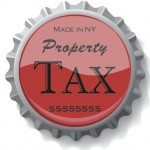
 Thirteen out of 16 New York school districts whose budgets were rejected by voters on May 15 were approved in re-votes held yesterday.
Thirteen out of 16 New York school districts whose budgets were rejected by voters on May 15 were approved in re-votes held yesterday.
Seven of the re-voting districts initially failed to receive the 60 percent supermajority threshold for approval of budgets exceeding the tax cap. In yesterday’s voting, all but one of the re-submitted budgets stayed within the tax cap and thus required only simple majorities to pass. The exception was Johnstown in Fulton County, where the tax cap for 2018-19 was lower than 2017-18 due to unique local circumstances. Seventy percent of Johnstown voters said yes to the override on the second try.
Budgets were rejected a second time in two tiny upstate school districts: Ripley in Chautauqua County (137 pupils) and West Valley in Cattaraugus County (220 pupils). Under a crucial provision of the 2011 tax cap law, the defeat of the second budget proposal means the tax levies in these districts must be frozen at the previous year’s levels. The third rejected school budget was in East Ramapo in Rockland County, where the usual budget issues are complicated by the fact that most students attend orthodox Jewish religious schools.
Tax cap opponents, led by the New York State United Teachers, have decried the cap as “destructive” and “undemocratic,” and have pushed (so far unsuccessfully) for loopholes that would weaken it. Yesterday’s results are just the latest reminder that the cap is working as intended, slowing the rate of school tax growth while preserving local control and letting districts override it when they can make the case to voters.
Despite this, Albany legislators still seem too eager to quench NYSUT’s thirst for higher taxes:
Lawmakers, pressed by the same unions thwarting mandate relief, have dabbled in recent years with weakening the tax cap by adding exemptions or by decoupling it from inflation. More extreme proposals have called for letting school districts approve budgets above the cap with simple majority votes—essentially eliminating it, and inviting a return to the days when school tax levies grew an average of 6 percent a year.
The most recent exemption to win approval from state lawmakers was S7730/A9825 by Sen. Terrence Murphy (R-Westchester County) and Assemblymember Sandra Galef (D-Westchester County), which passed in each house over the last two weeks. The bill would exclude school district contributions toward regional boards of cooperative educational services (BOCES) capital costs from the tax cap formula. This is the Legislature’s second attempt to create the BOCES exclusion after Governor Andrew Cuomo vetoed the measure late last year.
Proponents likely note that school district capital costs are excluded from the cap formula—but gloss over the fact that, unlike BOCES charges, those costs are approved separately by voters via referendum.
Lawmakers have proposed more radical changes to weaken the cap but none have passed the full Assembly or Senate during the current session. NYSUT’s priority support for the relatively limited BOCES exception probably reflects the union’s assumption that it would represent an important precedent for creating additional loopholes.
Because spending $22,366 per pupil just isn’t enough.







